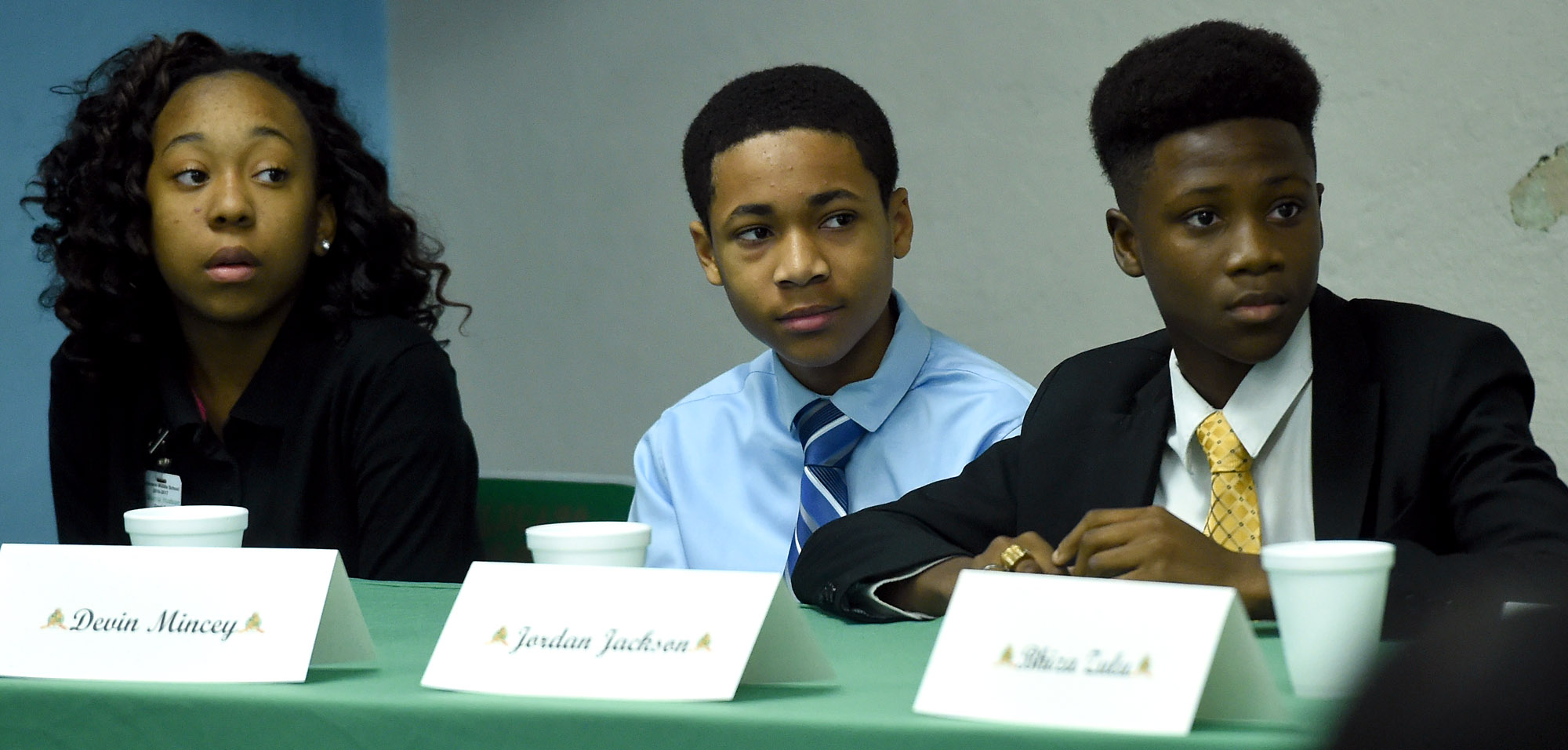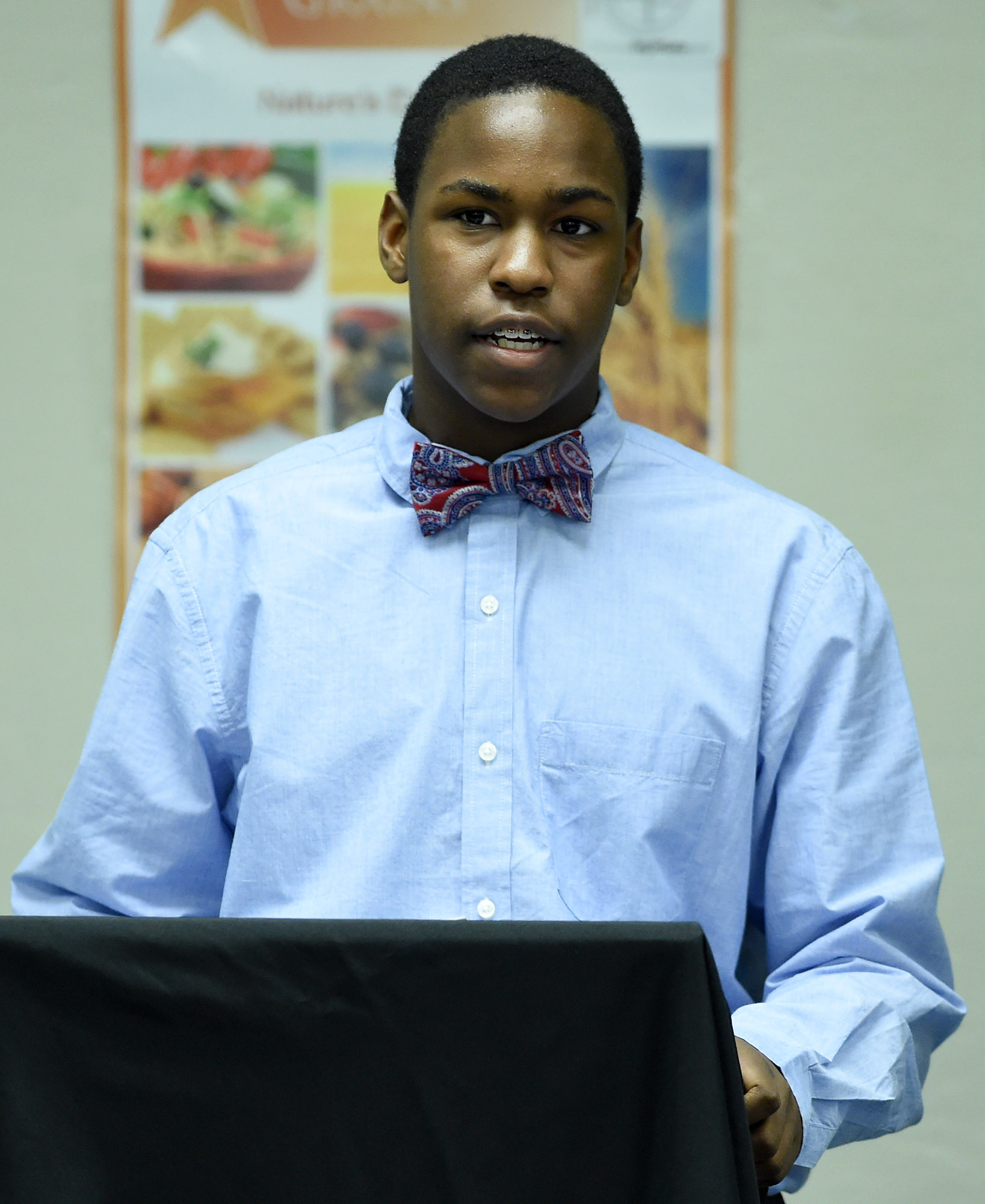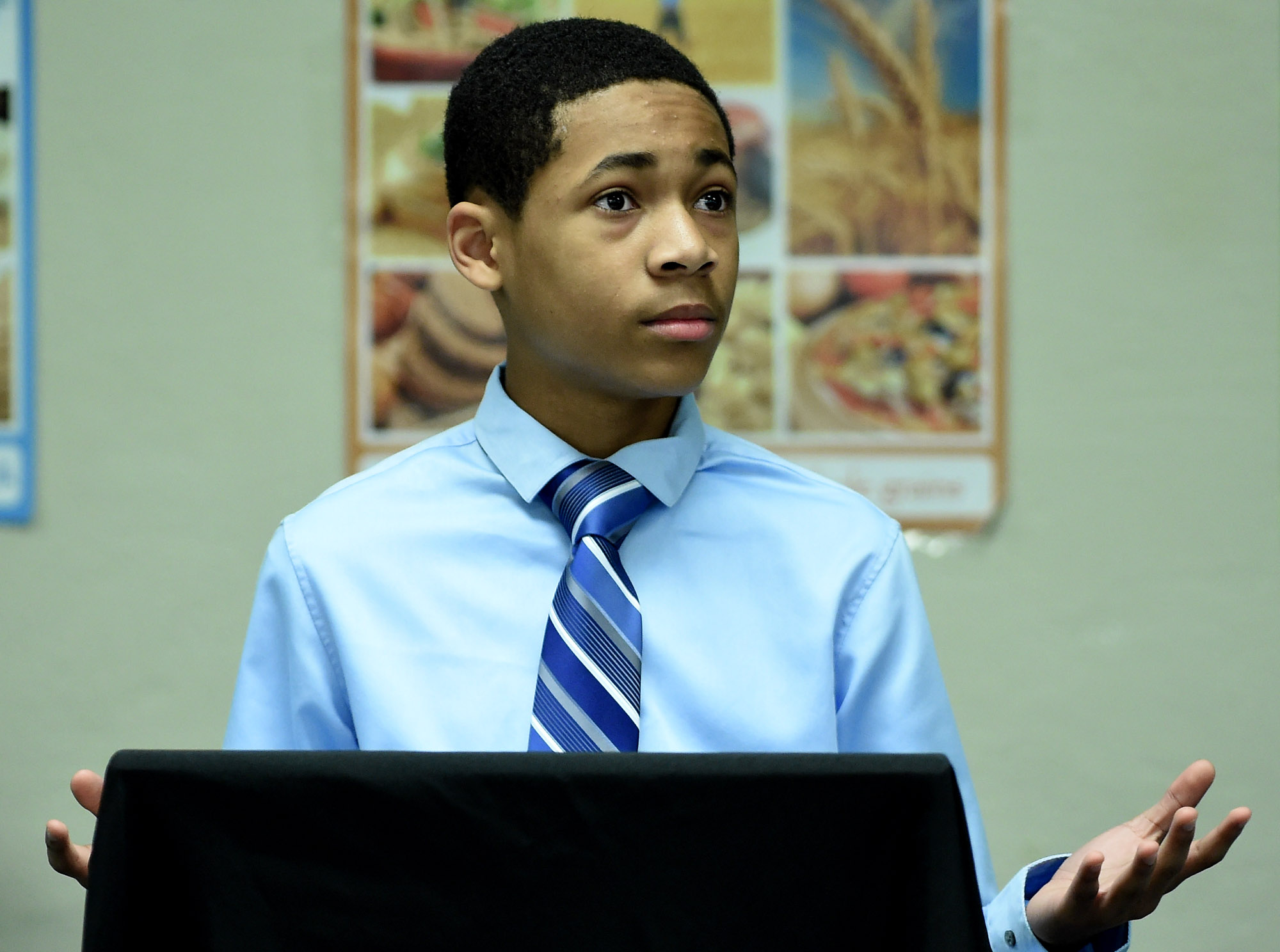
By Ariel Worthy
The Birmingham Times

What is ecology?
Bhiza Xulu, 14, an eighth grader at Malachi Wilkerson Middle School, answered: “Ecology is the study of how organisms interact with the environment. But, with that being said, we should look at how we as organisms—humans—interact with the environment around us. We need to see what we can do better to benefit from [the environment.]”
Xulu, a regular National Public Radio listener and MSNBC and CNN viewer, added, “The environment and politics are things we should know about, even at our age, because they affect us.”
Xulu was one of five students going up against Yohance Owens, executive director of Village Creek and Environmental Justice Society Inc., during a recent debate on science and other topics at Wilkerson. The question about ecology was one of several addressed by the students, four judges, and Owens in a lunchroom filled with middle schoolers and teachers who listened intently and took notes.
Keeping up with the issues like politics and the environment are important for another reason, as well: “As young black males, it’s a stereotypical thing for us to not pay attention, especially to politics,” said Xulu, who has partnered with fellow student Devin Mincey during debates.
“[Mincey] and I keep up with it because we enjoy learning about it,” Xulu added. “But if we can take away that stereotype and educate ourselves on politics and the environment, we can strive forward.”
Mincey said his interest in politics made the debate easy and allowed him to do something he enjoys: public speaking.
“I’m not afraid to do it,” he said. “Seeing our peers taking notes meant we said something they considered important.”
Mincey, 13, said he wants to be a police officer; he hopes to earn a lacrosse scholarship and attend Duke University in Durham, N.C, Harvard University in Boston, Mass., or Yale University in New Haven, Conn. Xulu said he wants to attend Tuskegee University and become an artist; his backup plan is to become a nuclear engineer or pediatric neurosurgeon. Both students had just returned from an academic bowl.
“[The debate is] like the math tournament, but it involves a basic knowledge of everything, including geography,” Mincey said. “I love geography. It comes easy to me. I don’t have to study for tests because I just know those types of things.”
Xulu and Mincey said they would like more tests in science and math.
“It’s really easy, so I would like more of a challenge, for it to be harder,” Xulu said.

‘What Is DNA?’
All morning during the debate, Wilkerson Middle School students were challenged with other questions, such as “What is DNA?”
Without hesitation, eighth-grader Jordan Jackson responded, “Deoxyribonucleic acid.”
The lunchroom then led in a chant on how to properly pronounce it.
Seventh-grade science teacher Dr. Jason Dunning said the questions were designed to highlight the importance of both students and leaders being involved in the community.
“In terms of metacognition—the process of thinking about thinking—we were able to tap into their minds and actively engage them in the debate by asking questions that have an impact on our lives, such as those involving politics and science,” he said.
Wilkerson’s students also learn science hands-on, Dunning said: “We have two gardens, the hydroponic garden and the school garden. They learn in the hydroponic garden and apply what they learned to the school garden.”
“It’s more of a community garden,” he added. “The students will be out of school in May, and during the harvesting months they won’t be able to engage with it as much, but we are going to keep the garden up.”
Learning outside the classroom will help students in the long run, said Principal Davida Hill-Johnson.
“It’s going to help them become … lifelong learners,” she said.
The inaugural debate was a chance for students to tap into their critical-thinking skills.
“The debate was a way to challenge them and to get them to speak in an open forum about subjects that they are learning right now,” said Village Creek and Environmental Justice Society Inc.’s Owens. “Politics is a big subject right now. [These students] have seen an African-American president, and that was normal to many of them, compared with the rest of us.”



